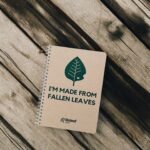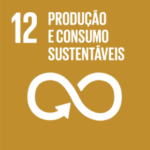
Releaf Paper. This Ukrainian start-up makes paper without cutting down trees
At Releaf Paper, paper is produced from fallen leaves in streets and urban parks, which are transformed into sustainable paper packaging. Releaf Paper is a
We didn't find any happenings mapped to your criteria.
Try the traditional search to find articles not yet mapped with RUA.
We didn't find any happenings mapped to your criteria.
Try the traditional search to find articles not yet mapped with RUA.
We didn't find any happenings mapped to your criteria.
Try the traditional search to find articles not yet mapped with RUA.
We didn't find any happenings mapped to your criteria.
Try the traditional search to find articles not yet mapped with RUA.
Reading is a great habit, but it can lead to unnecessary shopping and a backlog of books at home. However, there is way to be more conscious in how to continue this rich practice. We’ll tell you how.
For all those who cannot live without books, but who strive to have a life without great expense – of money and planet – fear nothing. There are ways to decrease our ecological footprint when it comes to our reading habits as well.
So, since we don’t want you to stop reading your favorite authors, here are four tips for more sustainable reading habits.
Paper production and printing processes require high water expenditures and usually involve the use of inks that are toxic to the planet, so anything we can do to decrease the production of first-party copies is a good start. Buying second-hand books is an opportunity to discover the many second-hand bookstores, reading booths, and fairs scattered around your area. This is also a way to support local commerce by buying books at lower prices, and to get in touch with book sellers who are passionate about books.
If you think about it, second-hand books have more than the story written in printed letters. Inside them also live the stories of those who read them. So don’t be surprised if you find dedications or notes taken by others.
If you prefer to shop online, explore Trade Stories, an online used book store.
We all know (or are) the person who accumulates new books on the bedside
desk. Book lovers tend to buy new books before they have even read the dozens of new books already flooding their shelves.
This tendency to be attracted to what is new simply because it is new is called neophilia, and it is what ultimately triggers a
unbridled and irresponsible consumerism.
Try not buying a new book until you’ve finished reading the ones you already have on the shelf.
There is a sense of ownership very much associated with books, and some people even dislike lending or borrowing them. However, if
you know a close friend or relative who has a similar taste to yours,
borrow the book that attracts you so much or trust people with your own books
that are closest to you. This experience not only saves resources but can be
interesting, since you will have someone to exchange ideas with about these readings. This suggestion includes exploring your area or college libraries to borrow and return books.
Many people suffer from the fact that they have not yet found a literary genre that appeals to them, and so they end up not developing a habit of
consistent reading. If you have come across Peggada it’s because you have some interest in sustainability and planetary issues and will be interested in reading more about it. As you start reading about the subject you will come across various approaches and authors who will help you grow as a person and with whom you will more or less identify. Reading for the purpose of learning more about topics we are especially curious about can help us to be better prepared to be agents of change in that area. The important thing is to get started.


At Releaf Paper, paper is produced from fallen leaves in streets and urban parks, which are transformed into sustainable paper packaging. Releaf Paper is a

This Sunday, April 2nd, is International Children’s Book Day, and Peggada couldn’t let this date pass without one of our suggestions. We share four suggestions

If you have books that you no longer need, there are places that will appreciate your donation. Find out the best places to give your

This article promotes an action that encourages the reduction of waste generation through prevention, reduction, recycling, and reuse.
➡️ To discover more businesses that are aligned with Sustainable Development Goal 12 “Sustainable Production and Consumption” click here.
➡️ For news, tips and interviews about this topic, click here
➡️ Want to know more about the 17 United Nations Sustainable Development Goals? Click here
Esta publicação também está disponível em:
![]() Português (Portuguese (Portugal))
Português (Portuguese (Portugal))

